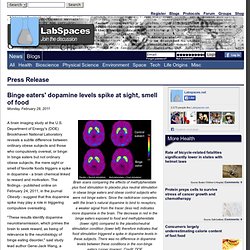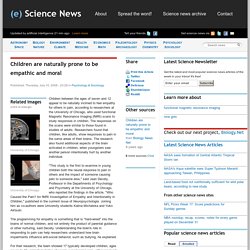

DeFelipe_2010.pdf (application/pdf Object) Human Thought Controls Neurons in Brain. Neuroscience research involving epileptic patients with brain electrodes surgically implanted in their medial temporal lobes shows that patients learned to consciously control individual neurons deep in the brain with thoughts. Subjects learned to control mouse cursors, play video games and alter focus of digital images with their thoughts. The patients were each using brain computer interfaces, deep brain electrodes and software designed for the research. The article below offers more detail. Controlling Individual Cortical Nerve Cells by Human Thought Five years ago, neuroscientist Christof Koch of the California Institute of Technology (Caltech) , neurosurgeon Itzhak Fried of UCLA, and their colleagues discovered that a single neuron in the human brain can function much like a sophisticated computer and recognize people, landmarks, and objects, suggesting that a consistent and explicit code may help transform complex visual representations into long-term and more abstract memories.
Neuroscience. Binge eaters' dopamine levels spike at sight, smell of food. Monday, February 28, 2011 Brain scans comparing the effects of methylphenidate plus food stimulation to placebo plus neutral stimulation in obese binge eaters and obese control subjects who were not binge eaters.

Since the radiotracer competes with the brain’s natural dopamine to bind to receptors, a weaker signal from the tracer (less red) indicates more dopamine in the brain. The decrease in red in the binge eaters exposed to food and methylphenidate (lower right) compared to the placebo/neutral stimulation condition (lower left) therefore indicates that food stimulation triggered a spike in dopamine levels in these subjects. There was no difference in dopamine levels between these conditions in the non-binge eaters (upper images). Children are naturally prone to be empathic and moral. Related images(click to enlarge) University of Chicago Children between the ages of seven and 12 appear to be naturally inclined to feel empathy for others in pain, according to researchers at the University of Chicago, who used functional Magnetic Resonance Imaging (fMRI) scans to study responses in children.

The responses on the scans were similar to those found in studies of adults. Researchers found that children, like adults, show responses to pain in the same areas of their brains. The research also found additional aspects of the brain activated in children, when youngsters saw another person intentionally hurt by another individual.